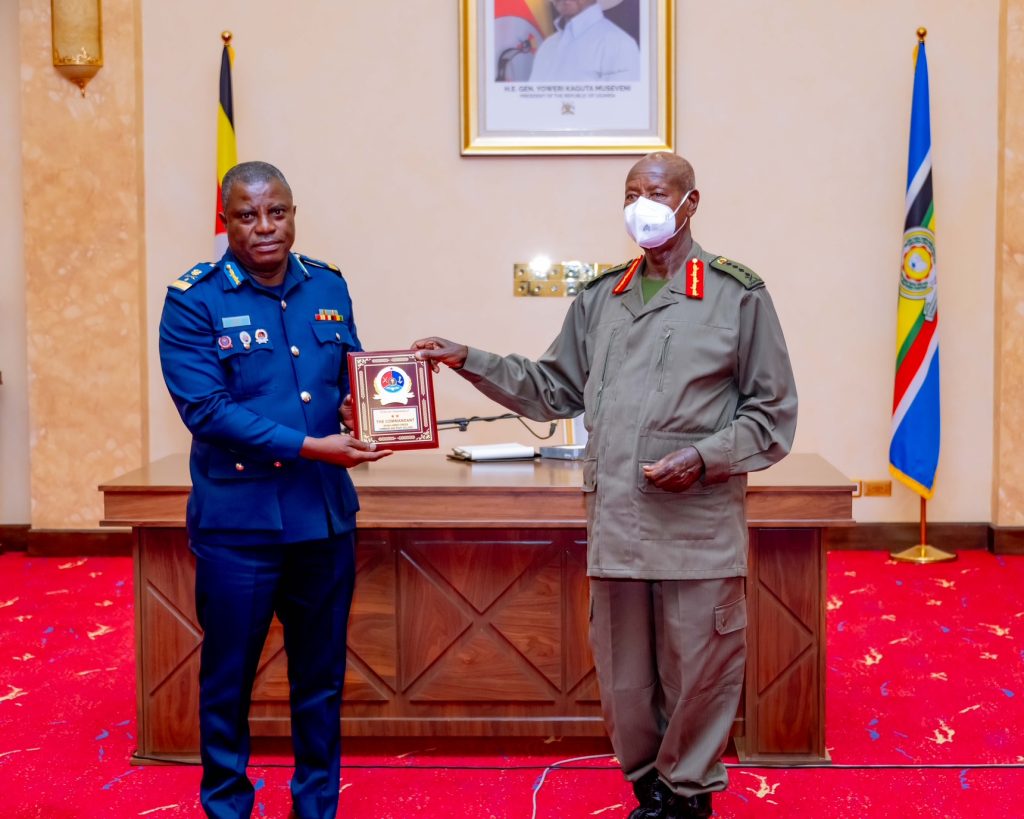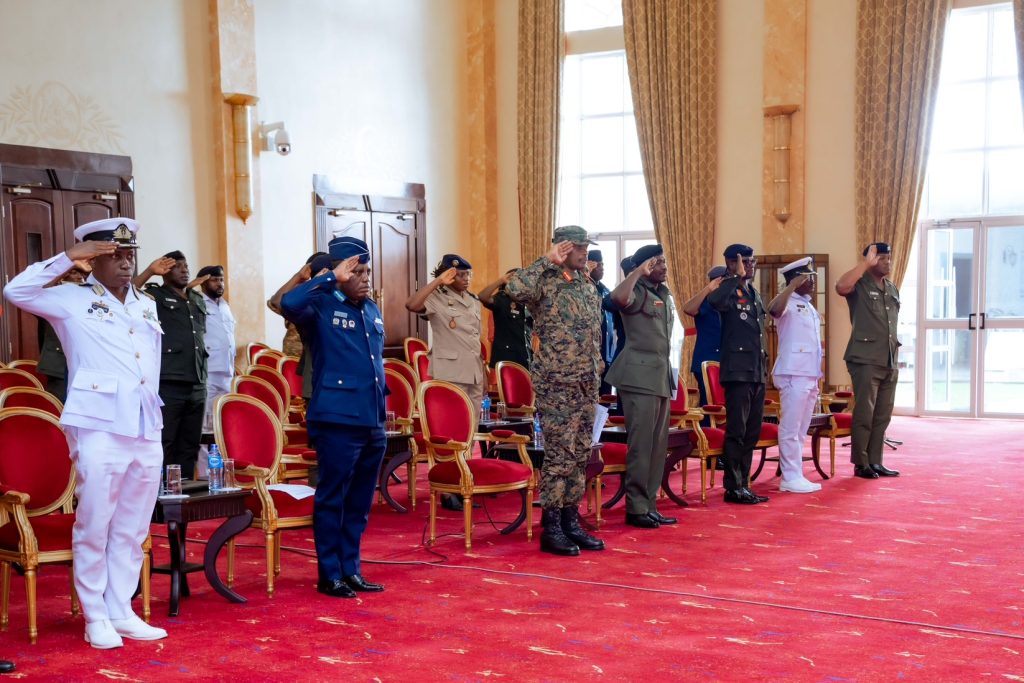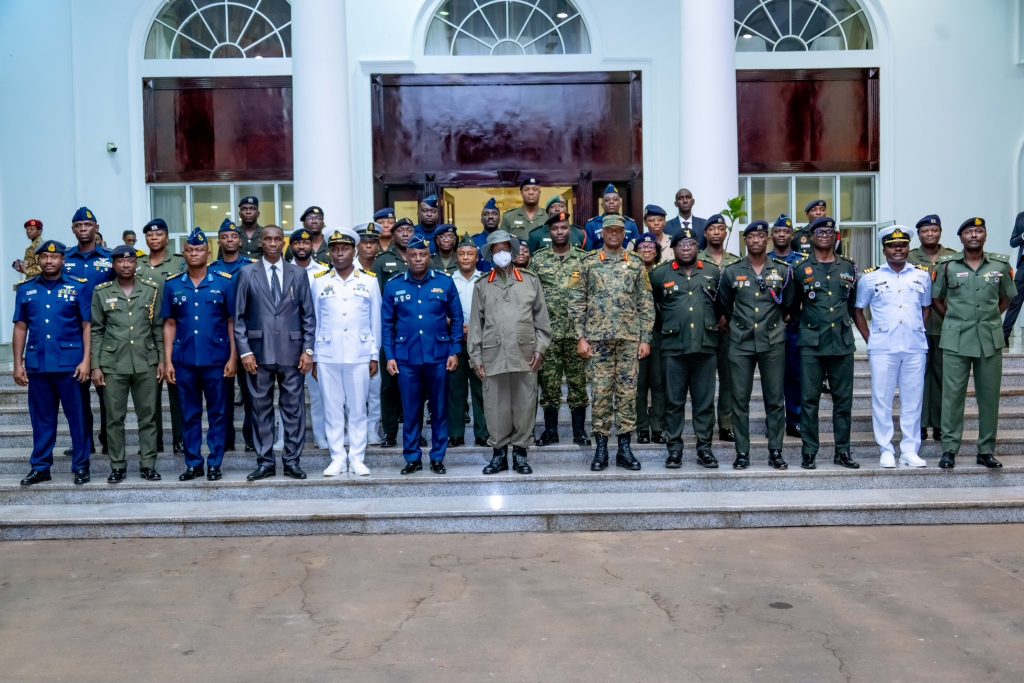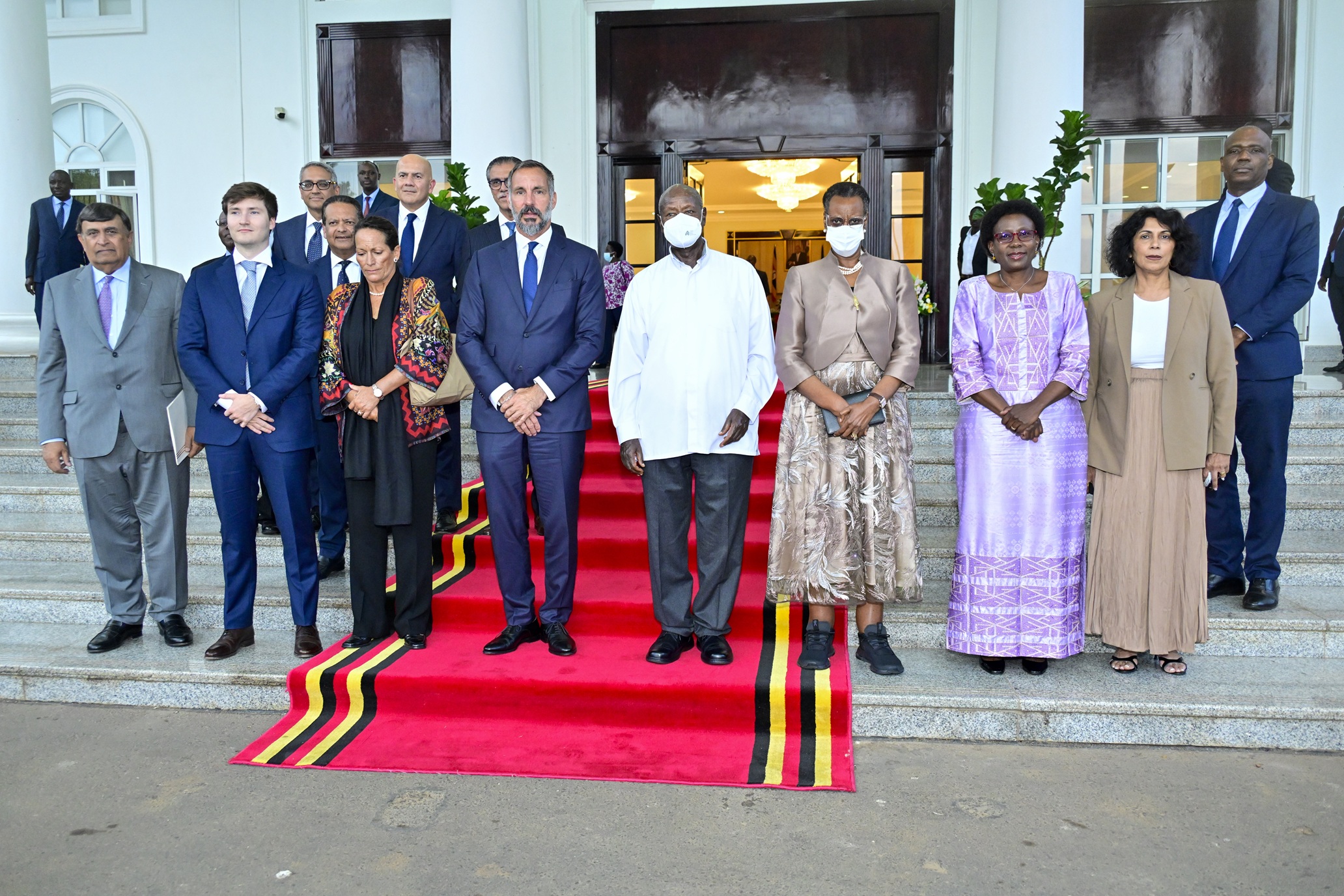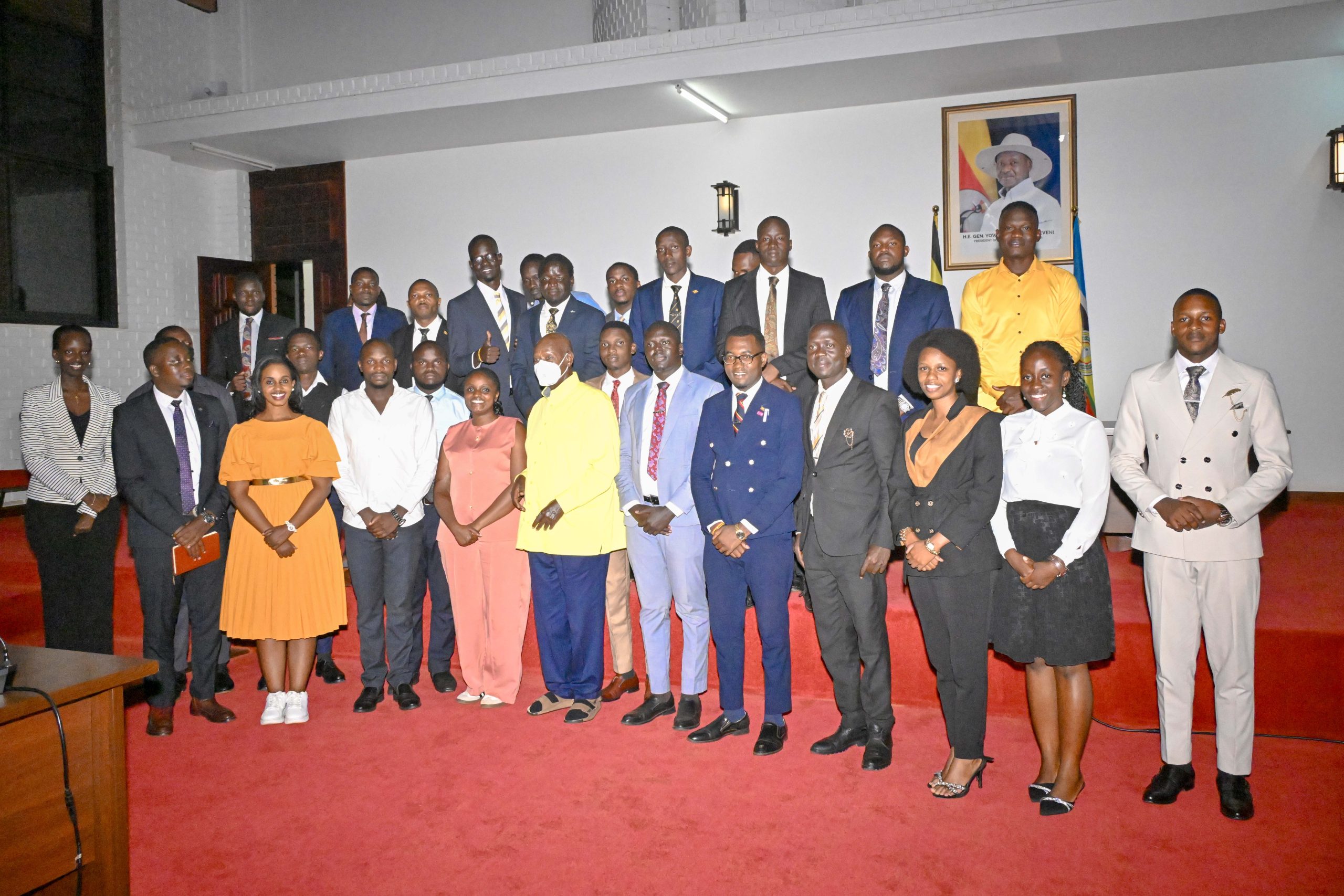He made the remarks yesterday while delivering a lecture of opportunity to the officers from the Ghana Armed Forces Command and Staff College (GAFCSC) Senior Course 46 at State House, Entebbe.
The group, currently on a study tour focusing on ‘Climate Change, Environment, Security and Development’ was led by Brig. Gen. Saad Katemba, Director of Training and Doctrine at the Uganda People’s Defence Forces (UPDF).
President Museveni emphasized the urgent need for Africa to transition from traditional biomass fuels like firewood and charcoal to modern and clean energy sources.
“If you want to protect the environment, you must solve the issue of fuel. We must stop the villagers from cutting down trees for firewood. Electricity is affordable and clean energy is the only solution,” he said.
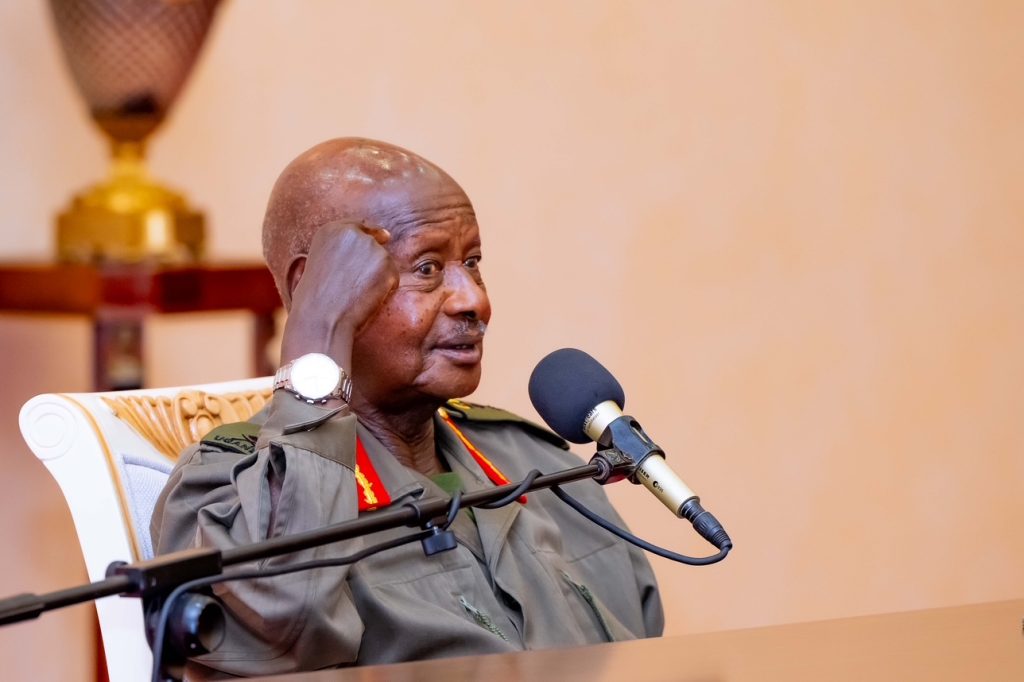
Citing environmental statistics, the President noted with concern that Uganda’s annual water outflow to South Sudan through the Nile has dropped from 60 billion to 40 billion cubic meters since the 1960s, a decline he attributes partly to deforestation driven by cooking fuel needs.
“You can investigate, country by country, how many cubic meters of biogas are destroyed each year, this is why I no longer welcome private electricity companies. Power must be made abundant and affordable by the government, or by private investors using patient capital. For manufacturing, the cost per kilowatt hour must not exceed five American cents,” he said.
“For nightclubs and dancers, I don’t mind high charges. But for factories and industries, power must be cheap. Industrialization depends on it.”
President Museveni further linked the energy crisis to broader structural challenges in African economies, including overdependence on subsistence agriculture.
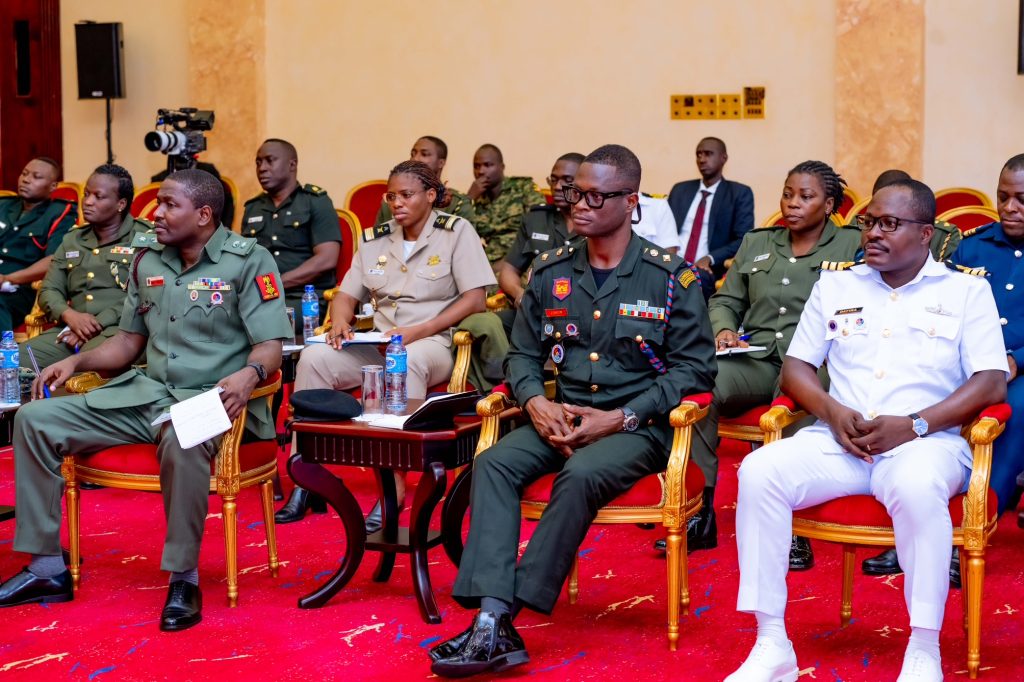
“Africa remains backward because of the high percentage of people trapped in agriculture,” he said.
“In the U.S, only 2% of the population is engaged in agriculture. In Uganda, you’ll find entire families—grandfather, father, grandchild all on two acres of land. That is disguised unemployment,” he said.
He also called for industrialization of the tropics especially in river catchment areas like the Nile and Congo basins, to enable rational and efficient land use.
“We must shift from primitive agriculture to manufacturing and services. That is the path to transformation,” President Museveni said.
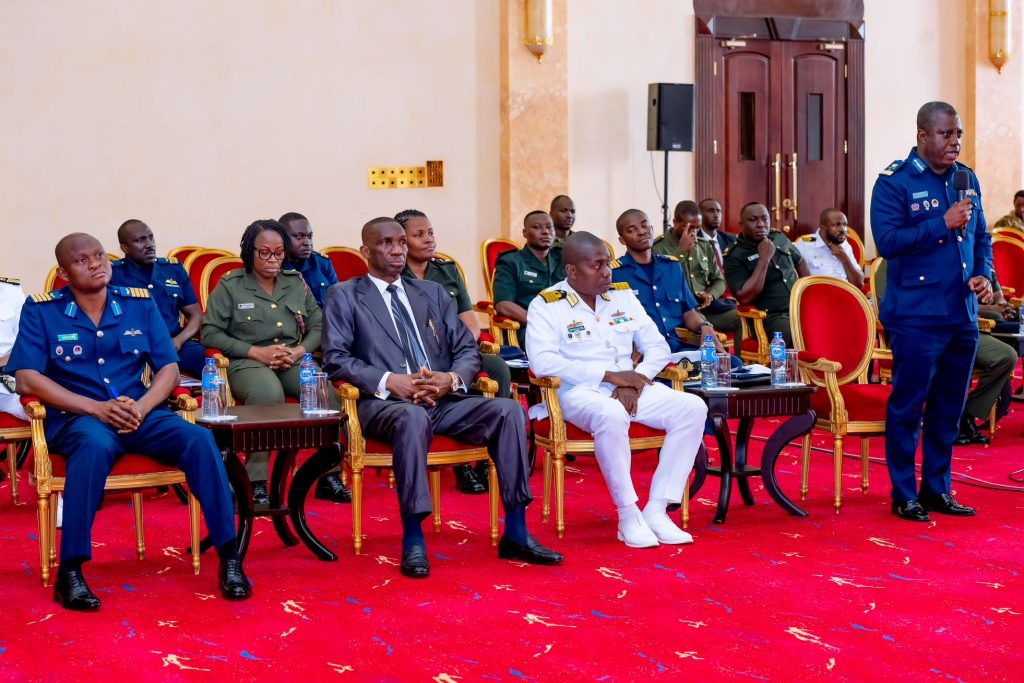
Reflecting on Africa’s post-independence political challenges, President Museveni warned against the politics of identity based on tribe, religion, gender and advocated for an ideology of common interest.
“When Ghana gained independence in the 1950s, we were already debating the future of Africa. We, the Pan Africanists like Nkrumah, Nyerere, and others identified three historical missions for Africa: prosperity, strategic security, and leveraging our fraternity as African peoples.”
President Museveni emphasized that prosperity cannot be achieved through foreign aid but through production and market access.
“If the Banyankore in Ankole produce milk and beef, they can’t be prosperous by selling to each other. They need wider markets; Uganda, East Africa and Africa. That’s why Pan-Africanism matters,” he said.
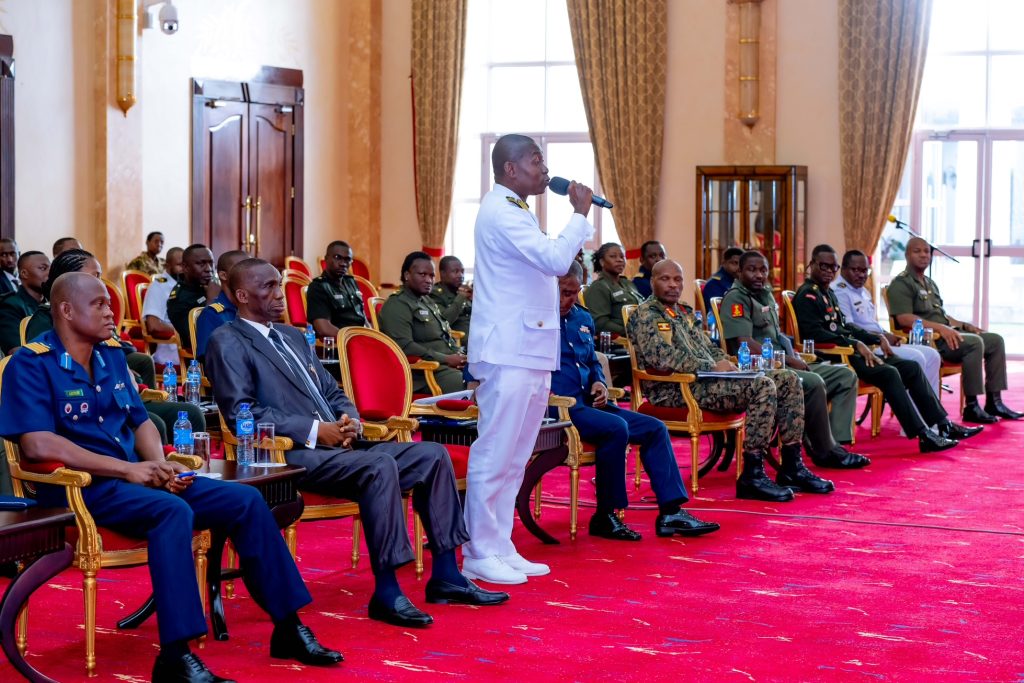
He explained the importance of vertical integration using Uganda’s cotton and milk sectors as examples.
“If you export raw cotton, you earn $1 per kilo. But if you take it through six stages growing, ginning, spinning, weaving, dyeing and tailoring, you earn $14. That’s how you create jobs and retain value,” he added.
President Museveni also weighed in on recent developments in West Africa, urging caution in political disagreements that could disrupt economic cooperation.
“You can impose sanctions on leaders, but don’t paralyze the economy, don’t close markets. In East Africa, we fought for regional integration. Uganda is part of the East African market, and that should never be undermined for political expediency,” he warned.
“Young people like you must embrace ideology. The environment, energy, integration all are linked to the right ideological path. Africa’s mistakes have largely been ideological.”
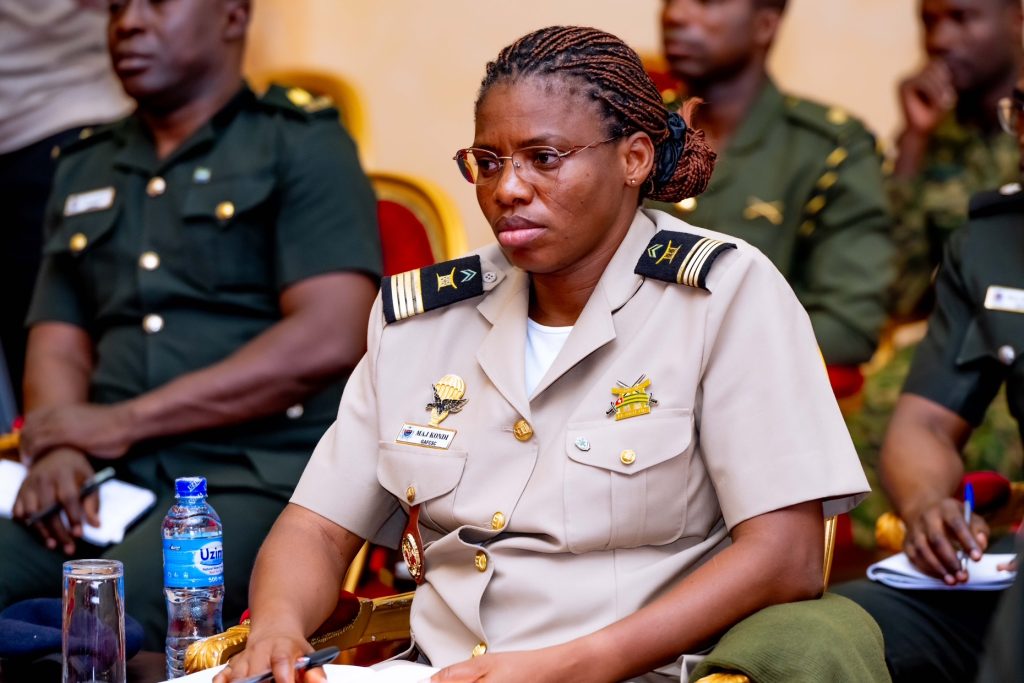
He further urged the officers to study and adopt the NRM’s four core principles: Patriotism, Pan-Africanism, Socio-economic Transformation, and Democracy.
“Only by embracing interest over identity can Africa achieve her historical missions,” President Museveni added.
On his part, Brig. Gen. Katemba gave a brief on the week-long study programme for the group which he said is aimed at equipping participants with best practices at the nexus of climate change, environmental protection, security and development.
“Our goal is to immerse these future leaders in Uganda’s integrated approach to environmental security and sustainable industry,” Brig. Gen. Katemba said.
“By engaging across military, regulatory and industrial spheres here in Uganda, these officers will return to Ghana with a comprehensive blueprint for integrating environmental stewardship into national security and development agendas.”
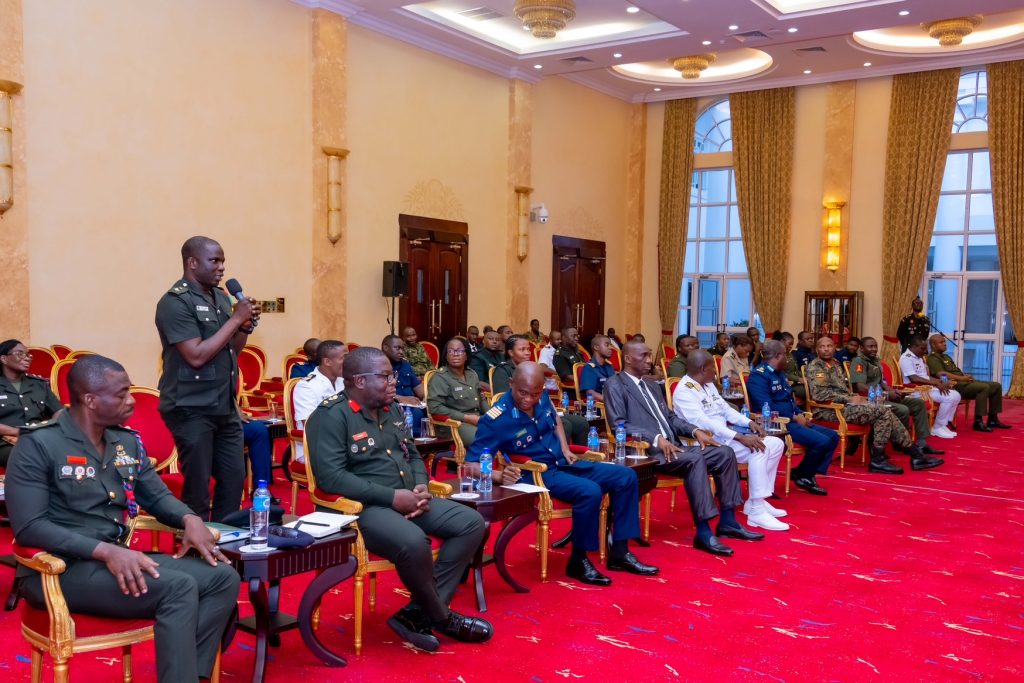
Maj. John Otoo, representing Ghana Armed Forces, delivered a vote of thanks to President Museveni for the lecture of opportunity.
“On behalf of all 35 members of Senior Course 46, I extend our deepest gratitude for your generosity in sharing your wisdom on continental enhancement,” Maj. Otoo said.
He reflected on the rich insights the officers had gained throughout the programme.
“We have been privileged to hear your lecture centered on Africa’s three historical missions—prosperity for our people, strategic security, and the bonds of our fraternity and your ideological principles of Patriotism, Pan-Africanism, Socio-economic Transformation, and Democracy,” he said.
